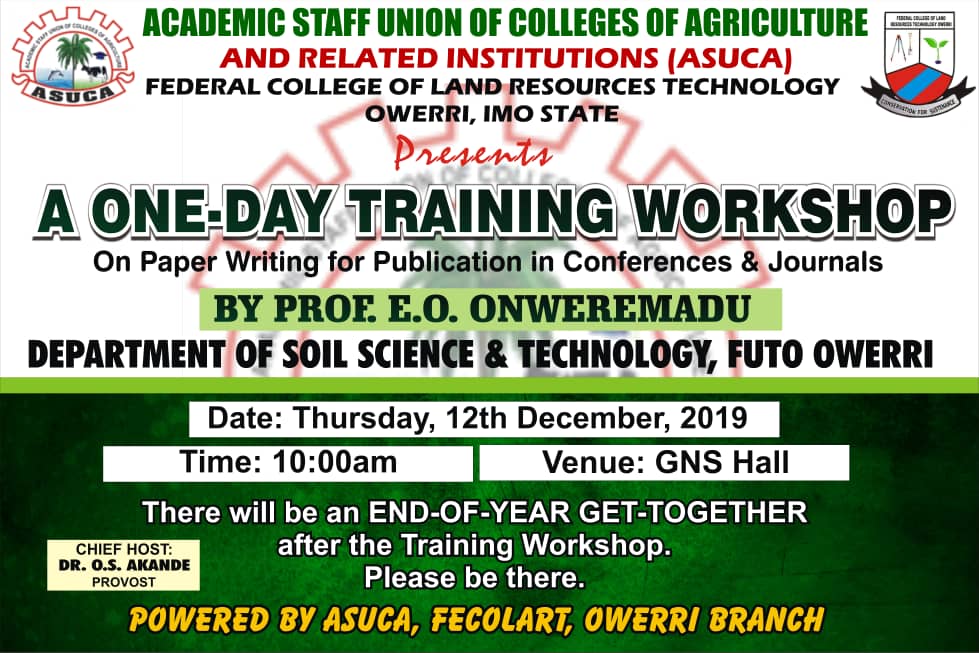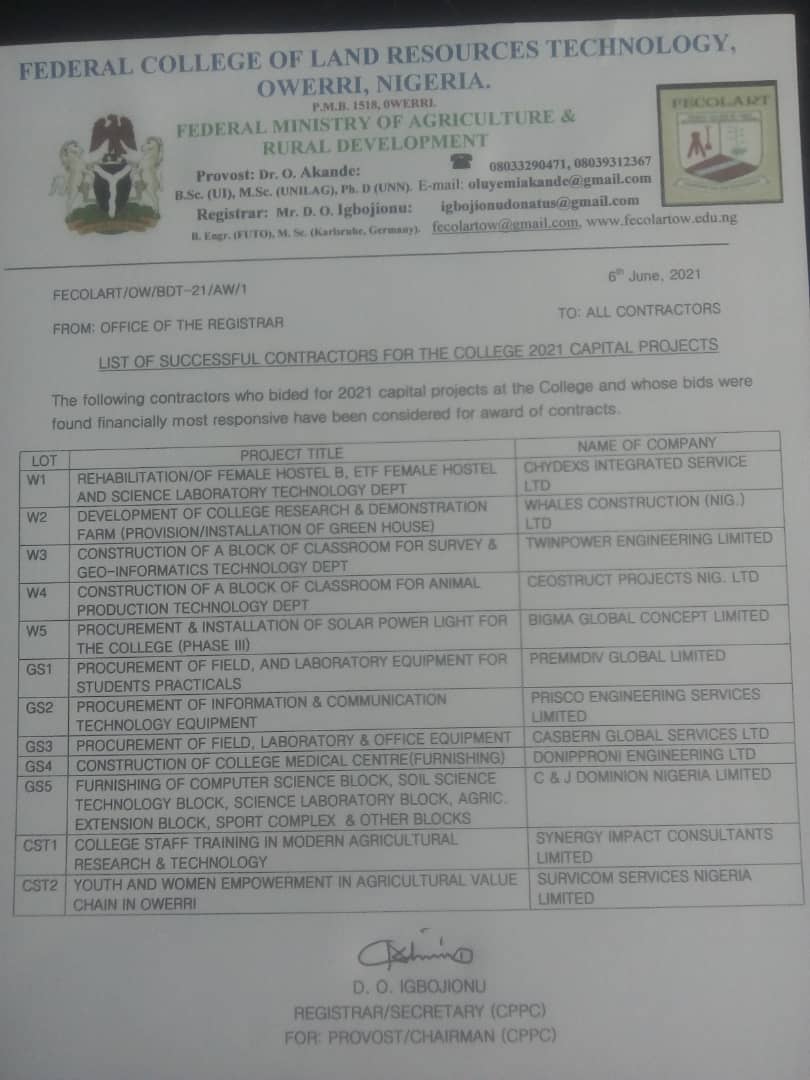- Home
- About
-
Schools
- ENTREPRENEURSHIP DEVELOPMENT CENTER
- DEPARTMENT OF COOPERATIVE ECONOMICS AND MANAGEMENT
- DEPARTMENT OF SOIL SCIENCE TECHNOLOGY
- DEPARTMENT OF ENVIRONMENTAL MANAGEMENT TECHNOLOGY
- DEPARTMENT OF AGRICULTURAL ENGINEERING
- DEPARTMENT OF AGRICULTURAL EXTENSION AND MANAGEMENT
- DEPARTMENT OF ANIMAL PRODUCTION TECHNOLOGY
- DEPARTMENT OF CROP SCIENCE
- DEPARTMENT OF AGRICULTURAL TECHNOLOGY
- DEPARTMENT OF SCIENCE LABORATORY TECHNOLOGY
- DEPARTMENT OF COMPUTER SCIENCE TECHNOLOGY
- DEPARTMENT OF SURVEYING AND GEO-INFORMATICS
- DEPARTMENT OF ENVIRONMENTAL MANAGEMENT TECHNOLOGY
- AGRIBUSINESS TECHNOLOGY (NATIONAL DIPLOMA AND HIGHER NATIONAL DIPLOMA)
- Admissions
- News & Events
- Gallery
- Contact Us


